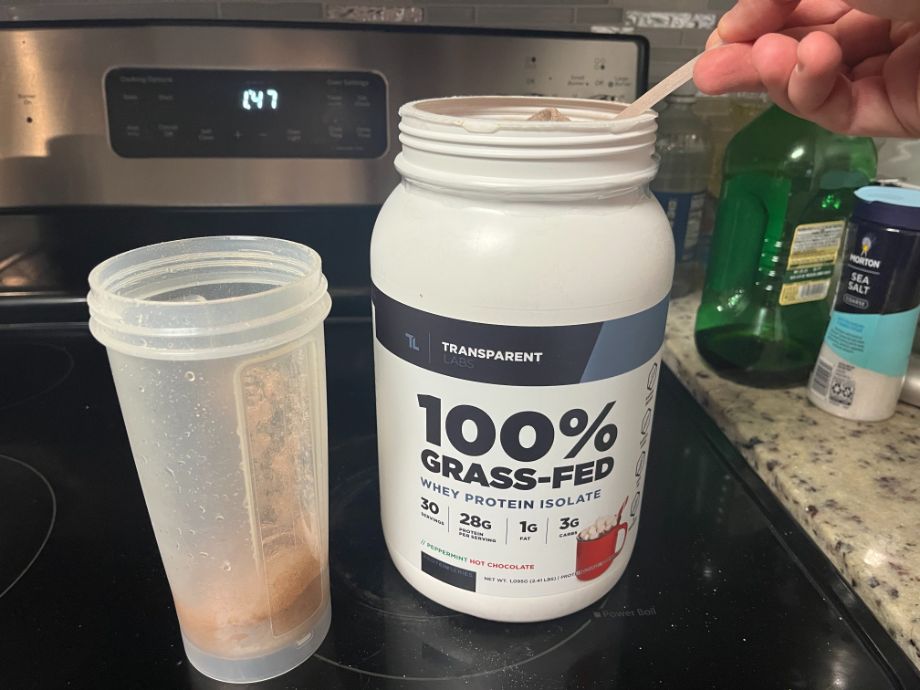We test and review fitness products based on an independent, multi-point methodology. If you use our links to purchase something, we may earn a commission. Read our disclosures.
Search for “What is protein?” and most engines will guide you toward the differences between whey protein isolate vs. concentrate—but that’s not the whole story.
As you read your whey through the topic, you’ll soon find that protein isolates extend beyond the milk protein. They encompass a broader range of sources, and are hardly limited to whey protein isolate.
So, if you’re curious about the full scope of protein isolates, you’re in the right place. Join me, a registered dietitian, as I reveal insights and facts beyond the standard whey narrative.
Medical disclaimer: This article is intended for educational and informational purposes only. It is not intended as a substitute for medical advice. For health advice, contact a licensed healthcare provider.
First, What Is Protein Isolate?
Protein isolate1 isn’t just any protein—it’s the most concentrated form of protein. But let’s take a step back to truly grasp protein isolate’s significance.
Protein is a crucial macronutrient, alongside carbohydrates and fats, and is composed of amino acids. These amino acids are categorized into two types:
- Essential amino acids must be obtained from high-protein foods or dietary supplements, as our body can’t produce them.
- Non-essential amino acids can be made (impressively) by your body.
Complete proteins provide all nine essential amino acids primarily sourced by animal proteins and a few select plants like soy. On the other hand, many plant proteins are incomplete, lacking one or more essential amino acids.
While whey protein isolates are popular, many different types of protein can be isolated—like quinoa, pea, and muscle protein isolates. I’m just kidding about the latter; just making sure you’re still with me!
Regardless of their source, protein isolates are highly concentrated in protein and have lower carbohydrate and fat content.
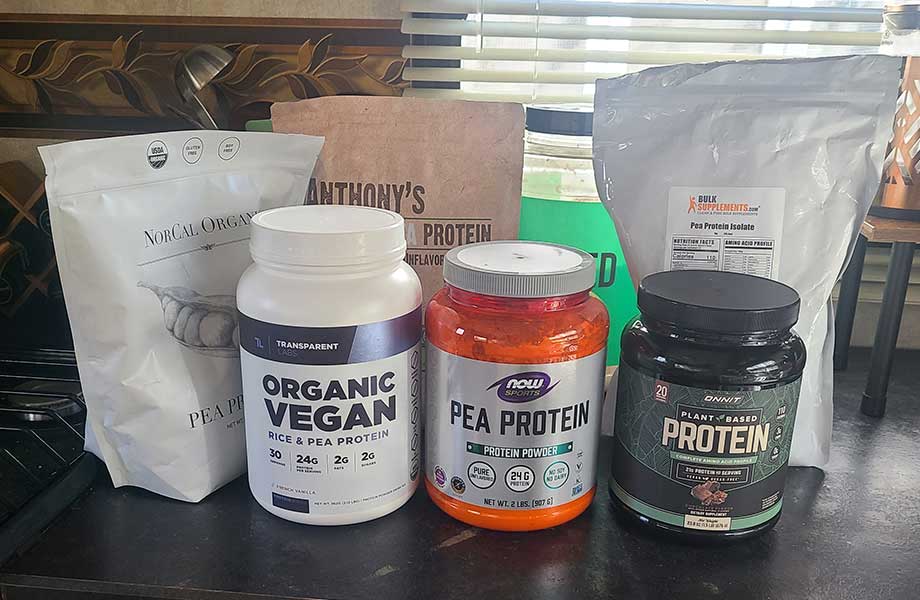
How Is Protein Isolate Made?
Protein isolates are made through sophisticated methods such as isoelectric and alkaline precipitation.1 Simply put, protein isolates are produced by filtering out most of the protein from a plant- or animal-based source.
Take whey protein, for instance. Let’s break down its production and filtration process, starting at the top in a stepwise fashion:
- Cheese production: Cow’s milk is treated with enzymes during the cheese-making process, separating it into solid curds (casein) and liquid (whey).
- Whey extraction: The liquid whey, a cheese-making by-product, is the foundation for whey protein products.
- Whey concentrate production: This liquid whey is then dried into a powder, forming whey concentrate with up to 80% protein content, alongside some fats and carbs.
- Whey isolate creation: The whey concentrate is further processed and filtered to reduce fat and carb content drastically.
The final product? Whey protein isolate, a highly pure protein comprising at least 90 percent protein by weight, offers numerous health benefits.
RELATED: Best Whey Protein
Benefits of Protein Isolate
Protein is not just beneficial—it’s essential to life. It powers countless bodily functions and forms the foundation of all body structures, offering only a glimpse into protein’s necessity. Plus, protein isolate may provide numerous significant health benefits, including those I’m about to call out.
Caters to Many Dietary Needs
Protein isolates cater to a variety of dietary preferences and needs.
For those with lactose intolerance, whey protein isolate is a suitable choice. Its processing significantly reduces lactose content, making it generally safe for individuals sensitive to lactose in other dairy products.
RELATED: Best Lactose-Free Protein Powder
Additionally, options like pea and soy protein isolates benefit plant-based dieters who want a protein boost without the extra fiber and carbs from plant proteins. Plant protein isolates also often have lower levels of “anti-nutrients” than whole plant foods.
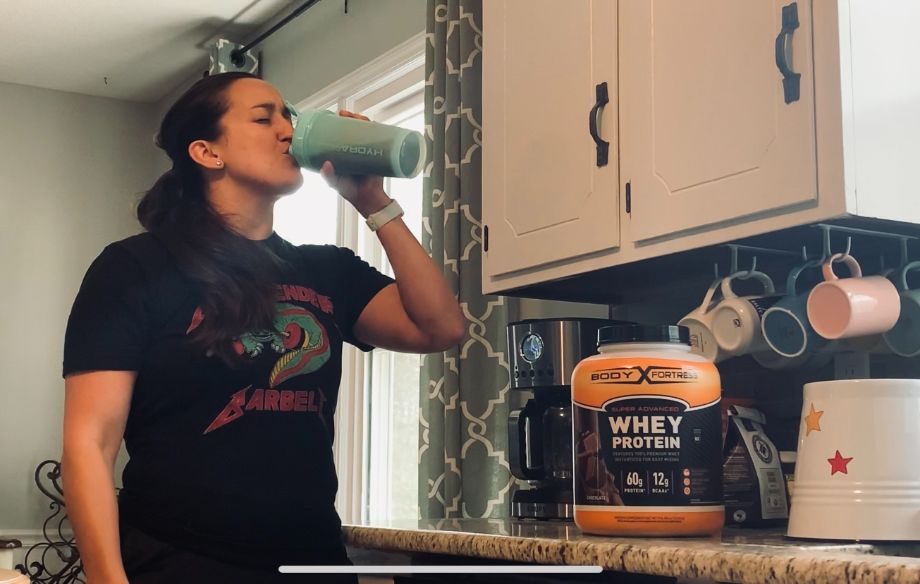
Supports Muscle Growth and Fitness Goals
Protein is a must if you want to enhance your athletic performance, build muscle, and recover optimally. But let’s start with the great news and caveat the other great news.
Whey isolate is a complete protein, providing all essential amino acids and branched-chain amino acids (BCAAs) required to stimulate protein synthesis and build lean muscle mass. Great news!
But remember, not all proteins are complete, especially isolated plant-based proteins. Soy and pea protein isolates are two of the most notable exceptions; although there are many pea protein benefits, it’s low in methionine despite containing all nine essential amino acids.
The caveated great news? By diversifying high-quality protein sources, you can gather all the essential building blocks your body needs.
Want even more great news? Recent research2 also shows that pea protein promotes muscle growth and increases muscle strength.
Aids Weight Loss
Weight loss fundamentally hinges on maintaining a calorie deficit until you achieve your goal. Protein is pivotal in this journey, enhancing energy metabolism, curbing appetite, and regulating calorie intake, as research in the American Journal of Clinical Nutrition3 dictates.
Prioritizing high-protein foods for weight loss and, where necessary, protein isolate supplements can effectively reduce total calorie intake while ensuring adequate protein consumption. Research suggests4 that whey protein isolate may even benefit blood cholesterol and insulin levels in overweight and obese individuals.
Additionally, a 2020 review5 underscores the advantages of plant proteins like pea protein isolate for weight management and metabolic health. These benefits range from a strong satiety effect, helping control appetite, to hypolipidemic properties that lower lipid levels and the potential to reduce blood pressure.
RELATED: Best Pea Protein Powder
Optimizes Convenience
While protein isolate powder should not replace the comprehensive nutrition provided by whole foods, we can’t deny its convenience and portability. A typical protein shake offers 20 to 30 grams of protein per serving, comparable to 3 ounces of lean chicken breast, without the need for proper storage or limited shelf life.
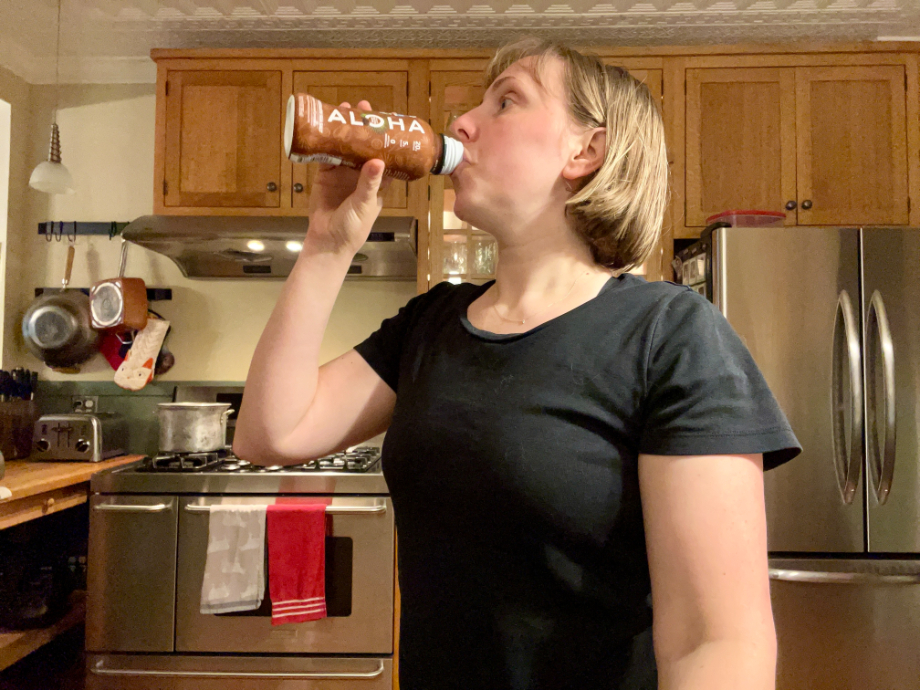
Potential Side Effects of Protein Isolate
Protein isolates, such as whey and casein, are generally well-tolerated. All that to say, most of the risks come down to the source itself and the amount consumed.
Digestive Issues
A common concern with protein isolates is digestive discomfort, including bloating, gas, and diarrhea. However, as one of the most digestible protein sources, these issues often arise due to individual sensitivities—like lactose found in whey and casein and artificial ingredients in the protein powder.
RELATED: Does Protein Powder Really Give You Protein Farts?
Overconsumption could also contribute to digestive problems. For example, older research6 suggests gastrointestinal side effects may occur when taking 60 grams of soy or casein isolates daily, about double the amount of one 28-gram serving.
To reduce the risk of digestive issues, identify and avoid protein sources that you’re sensitive to and moderate your intake. Also, consider other options, such as the best protein powders for sensitive stomachs.
Allergy Risks
Many protein powder sources, including milk and soybeans, are among the most common food allergens. Also, let’s say you choose a whey protein supplement, knowing you must avoid soy. Even supplements labeled as whey protein could contain allergens, like soy or coconut, due to cross-contamination or intentional inclusion.
Exercise caution with protein powders if you have known allergies to avoid potentially severe (or fatal) allergic reactions. Always read product labels carefully, and when in doubt, err on the side of safety and avoid the product—it’s not worth the risk!
Health and Medical Concerns
Especially if consumed in excess, protein isolate may contribute to or exacerbate the following:
- Weight gain: While protein isolates can help aid muscle building and weight loss, they are also calorie sources and may contribute to weight gain if consumed excessively.
- Nutrient deficiencies: Lacking carbs and fats, protein isolates are not meal replacements and shouldn’t be used as one. Replacing meals with protein supplements can result in a lack of dietary fiber and other essential nutrients.
- Kidney health: For individuals with pre-existing kidney disease7 or those at risk, high-protein diet side effects may pose health concerns. However, in healthy individuals, there is no substantial evidence linking high protein intake to kidney damage.
Protein supplements may also interact with certain medications, so discussing their use with your healthcare provider if you’re on medication is essential.
Whey Isolate vs Whey Concentrate vs Whey Hydrolysate
Known for its complete amino acid profile, whey protein powder is a favorite among fitness enthusiasts and bodybuilders. But what are the differences between these types of whey protein, and which might you choose? Here are simple, quick tips to help guide your choice.
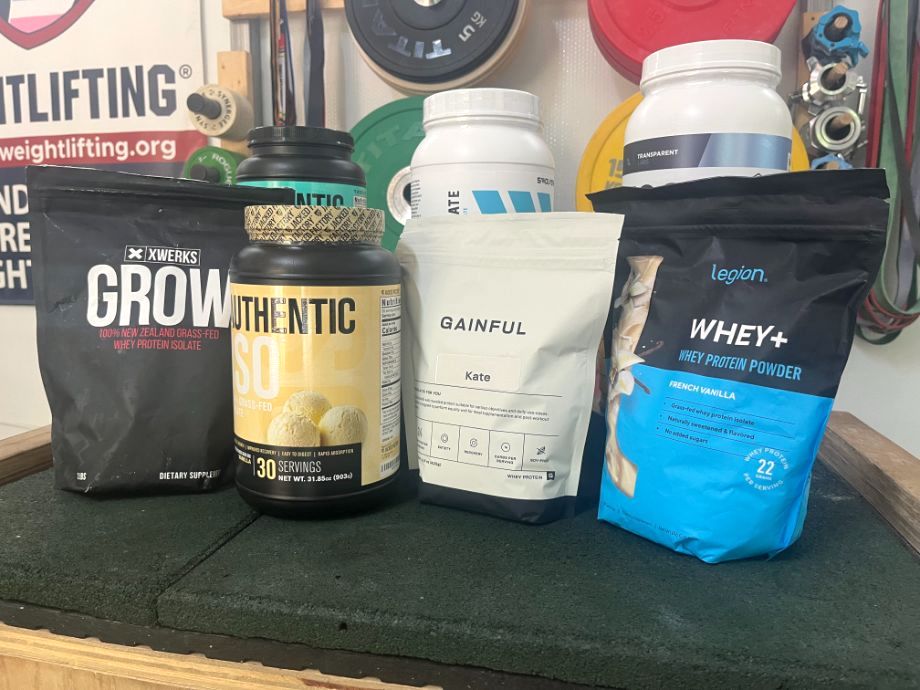
Whey Protein Concentrate: Basic and Budget-Friendly
- Processing: This is the least processed among the whey proteins, containing some carbs (lactose) and fats.
- Protein content: The protein concentrate varies between 30% to 80% by weight.
- Pros: Supplies a complete amino acid profile, tends to be more affordable, and offers a creamier texture
- Cons: Not suitable for those with lactose intolerance.
- Ideal for: Everyday fitness enthusiasts and beginners to protein supplementation who don’t mind a little extra carbs and fats.
Whey Protein Isolate: Lean and Lactose-Friendly
- Processing: Undergoes extra filtration compared to whey protein concentrate, significantly reducing most, if not all, fats and carbohydrates (lactose).
- Protein Content: At least 90% protein by weight.
- Pros: Contains all essential amino acids with little to no lactose and fat.
- Cons: Generally costlier than concentrate due to its higher purity and processing.
- Ideal for: Individuals seeking high protein with minimal fat and lactose, including athletes, low-carb dieters, and those with lactose intolerance.
RELATED: Best Low-Carb Protein Powder
Whey Protein Hydrolysate: Fast-Digesting and Hypoallergenic
- Processing: A pre-digested (hydrolyzed) form of whey concentrates or isolates designed for faster absorption.
- Pros: Offers rapid protein absorption and is the most hypoallergenic whey protein source8, making it the least likely to cause allergic reactions.
- Cons: Tends to be the most expensive option among the whey protein types.
- Ideal for: Individuals with digestive issues or milk allergies and athletes requiring quick protein absorption.
Choosing the Right Whey Protein
To quickly recap, your choice mainly depends on your specific health needs, fitness goals, and budget:
- Whey protein concentrate is a basic, budget-friendly option suitable for everyday fitness enthusiasts and beginners but not for those with lactose intolerance.
- Whey protein isolate is a lean, lactose-friendly protein option with minimal fat suited for those with lactose intolerance, though it is costlier than concentrate.
- Whey protein hydrolysate is a fast-digesting, hypoallergenic form of protein ideal for individuals with digestive issues or milk allergies and athletes requiring quick protein absorption. However, it is the most expensive option.
Ultimately, you can’t go wrong with whey protein unless you have a food allergy, sensitivity, or tight budget. Its complete amino acid profile and rich leucine content make whey protein valuable in building muscle and supporting overall health and wellness.
RELATED: Alternatives to Whey Protein

Final Thoughts: What Is Protein Isolate?
Protein isolates stand out for their high purity and concentration, boasting at least 90% protein by weight. Isolates contain little to no carbohydrates, fats, and lactose (if derived from dairy), making them leaner than protein concentrates.
Whey protein isolates are well-known, but isolates from other sources—such as soy and pea proteins—are gaining popularity. The variety and high purity of these protein isolates offer significant benefits, including promoting muscle growth, aiding weight loss, and catering to those with lactose intolerance and other dietary requirements.
RELATED: Best Vegan Protein Powder
Balancing lean protein foods in a wholesome diet is priority number one. But if you’re in the market to supplement your diet or boost your protein intake, a protein isolate is a valuable pure protein source low in carbs, fats, and lactose.
What Is Protein Isolate? FAQs
Is an isolate protein better for you?
Whether or not isolated protein is better for you depends on your dietary goals and health needs, and you should prioritize high-protein foods first. However, if you have dietary restrictions or health issues like lactose intolerance, protein isolates are a convenient and fitting choice. They are also preferable over protein concentrates if you follow a low-carbohydrate or low-fat diet.
What is the difference between protein and protein isolate?
The main difference between protein and protein isolate is their protein concentration and purity. Protein refers to foods like meats, dairy, and nuts and may be accompanied by fats and carbohydrates. Protein isolate, however, is a purer form with at least 90% protein and minimal non-protein components like fats and lactose.
What are examples of protein isolates?
Protein isolates are derived from various animal and plant sources, and common examples include whey, pea, and soy protein isolates.1
As for examples of available protein isolate products, here are a few of our in-depth reviews of some of the top isolate powders to get you started:
– Transparent Labs Protein review
– Dymatize ISO-100 review
– Isopure Protein review
Who should use isolate protein?
Isolate protein, particularly whey protein isolate, is suitable for those seeking a pure protein source with minimal carbs, lactose, and fat, including individuals with lactose intolerance. Vegetarians and vegans can also benefit from plant-based protein isolates like soy or pea protein, which provide similar high-protein content with low levels of other macronutrients.
These statements have not been evaluated by the Food and Drug Administration. This product is not intended to diagnose, treat, cure, or prevent any diseases.
References
- Garba U, Kaur S. Protein Isolates: Production, Functional Properties and Application. IJCRR. 2014;6(3):35-45. doi:https://doi.org/10.31782/2231-2196
- Shanthakumar P, Klepacka J, Bains A, et al. The Current Situation of Pea Protein and Its Application in the Food Industry. Molecules. 2022;27(16):5354. Published 2022 Aug 22. doi:10.3390/molecules27165354
- Leidy HJ, Clifton PM, Astrup A, et al. The role of protein in weight loss and maintenance. Am J Clin Nutr. 2015 Jun;101(6):1320S-1329S. doi: 10.3945/ajcn.114.084038. Epub 2015 Apr 29. PMID: 25926512.
- Pal S, Ellis V, Dhaliwal S. Effects of whey protein isolate on body composition, lipids, insulin and glucose in overweight and obese individuals. Br J Nutr. 2010 Sep;104(5):716-23. doi: 10.1017/S0007114510000991. Epub 2010 Apr 9. PMID: 20377924.
- Stilling K. Health Benefits of Pea Protein Isolate: A Comparative Review. SURG Jour. 2020;12(1). doi:https://doi.org/10.21083/surg.v12i1.6111
- Albertazzi P, Pansini F, Bonaccorsi G, et al. The effect of dietary soy supplementation on hot flushes. Obstet Gynecol. 1998 Jan;91(1):6-11. doi: 10.1016/s0029-7844(97)00597-8. Erratum in: Obstet Gynecol 2001 Oct;98(4):702. PMID: 9464712.
- Ko GJ, Rhee CM, Kalantar-Zadeh K, et al. The Effects of High-Protein Diets on Kidney Health and Longevity. J Am Soc Nephrol. 2020;31(8):1667-1679. doi:10.1681/ASN.2020010028
- Bu G, Luo Y, Chen F, et al. Milk processing as a tool to reduce cow’s milk allergenicity: a mini-review. Dairy Sci & Technol. 93, 211–223 (2013). https://doi.org/10.1007/s13594-013-0113-x
Further reading

Our guide to the best rowing machines under $300 features Bluetooth-compatible rowers with multiple resistance levels. Read more

Check out our thoughts on the multi-functional machine making a “major” splash on the scene in our Major Lutie Power Rack review. Read more

Sorinex is making some of thebest home gym equipmentavailable and the Sorinex XL Rack is no exception. Although pricey, it's one of the best racks available and competes directly with Rogue Fitness' premiere Monster Line. After using a Sorinex XL Rack over the past 6 months, we can confidently give a high recommendation to anyone wanting a great squat rack with all the bells and whistles and aren't too concerned with price. Read more

Looking to save some cash on Transparent Labs products? Check out our Transparent Labs discount code page for all the ways to save. Read more

